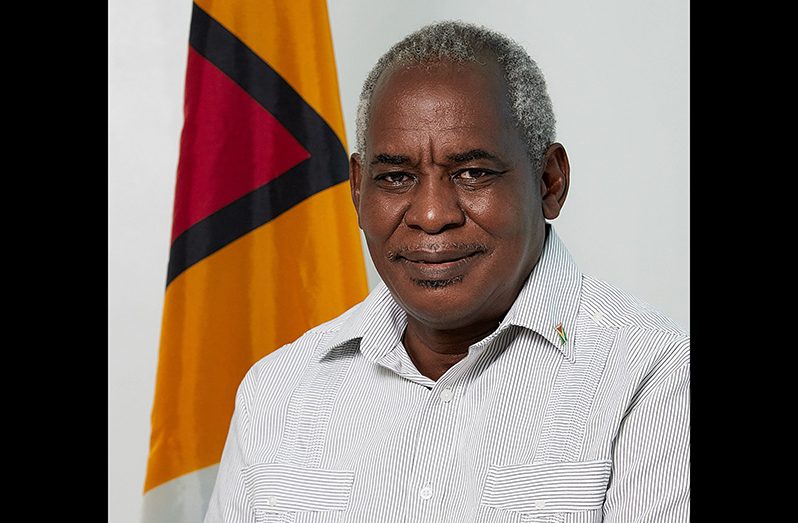-says Home Affairs Minister
HIGHER level of respect, trust and improved professional policing are pivotal to the Guyana Police Force (GPF) achieving its mission of reducing criminal activities across the country, according to Minister of Home Affairs, Robeson Benn.
Minister Benn made the disclosure during a high-level virtual debate on “Urban safety, security and good governance: making crime prevention a priority for all,” on Thursday, organised by the Permanent Mission of Guyana to the United Nations.
Trust in the GPF, according to the Home Affairs Minister, is critical in generating solutions for crime prevention. He noted that good relations between law enforcement agencies and communities is important since effective crime prevention strategies require a collaborative approach.
In an effort to achieve this goal, there has been renewed efforts to rebuild Community Policing Groups across the country. Additionally, the National Commission on Law and Order (NCLO) has recently been reestablished after a five-year hiatus.
Minister Benn noted that with the rapid growth of urbanisation currently underway in Guyana, the country will continue to face challenges of corruption, illicit trafficking, money laundering, sexual violence, terrorism, and gang-related crimes, which all have negative impacts on the safety and security of citizens and impede efforts towards maintaining good governance.
The Security Minister, however, noted that the government has been working to ensure that it identifies and addresses the underlying causes of urban crime.
“It is acknowledged that the first step in accelerating the reduction of urban crime and violence is to identify and address the underlying causes of urban crime, crime risks and vulnerabilities. Socio-economic factors, including poverty, unemployment and domestic violence, are the elements driving crime.
“The sense of insecurity spawned by crime ultimately affects economic stability and has dire implications for good governance, including the rule of law,” Minister Benn said.
Further, the Home Affairs Minister noted that the recent appearance of significant numbers of migrants and refugees from neighbouring states bring new aspects to the issue of urban crime, adding that the ministry is taking the necessary steps to ensure that all refugees are documented.
In early 2020, Guyana emerged as a leader in responding to the Venezuelan crisis, becoming the first country in the Caribbean and the Americas to roll out government-led registration through the United Nations High Commissioner for Refugees (UNHCR’s) Population Registration and Identity Management Ecosystem (PRIMES) to collect key data, including biometric information from people forced to flee or people in need of basic services.
“Guyana’s approach to crime prevention in urban settings encompasses a range of targeted initiatives, the sum of which is meant to create safe urban spaces in accordance with international norms and standards,” Minister Benn emphasised.
He noted that the Government of Guyana intends to continue its collaboration with the international community and work with its development partners to accelerate progress in combatting urban insecurity and to creating conditions conducive to sustainable growth and development.
Commissioner of Police (ag), Nigel Hoppie, durng a recent interview, said that the force is committed to moving forward and creating systems that would allow for a higher level of service. He stated that while the past year has been a challenging one, it has allowed the force to rise to the challenge and create innovative ways to utilise its resources to achieve its goals.
He further stated that the GPF will continue to work diligently to promote security through its undertaking of raids, roadblocks, robust anti-crime patrols and intelligence network, bolstered by divisional anti-crime units and analytical work by way of data collection through the integrated crime-information system.



.jpg)








